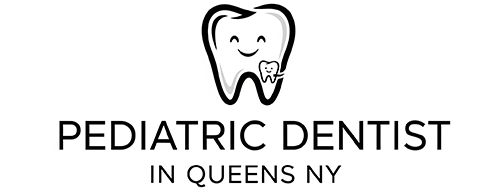Introduction to Oral Health
Oral health is a critical component of overall health and well-being. It encompasses the health of your teeth, gums, and the entire oral-facial system that allows us to smile, speak, and chew. Good oral health improves an individual’s ability to speak, eat, and socialize without discomfort or embarrassment.
Understanding Oral Diseases
Common Oral Health Issues
Oral diseases range from cavities to oral cancer and can affect anyone. The most common oral health issues include dental cavities, gum disease, oral cancer, oral infectious diseases, trauma from injuries, and hereditary lesions.
Causes of Oral Diseases
Poor oral hygiene, unhealthy diet, tobacco use, and excessive alcohol consumption are leading risk factors for oral health issues. Genetic predisposition also plays a role in the susceptibility to some oral diseases.
The Impact of Oral Health on General Health
Oral Health and Systemic Diseases
There is a significant link between chronic oral infections and other health problems, including heart disease, stroke, diabetes, and respiratory disease. Poor oral health can have a detrimental effect on one’s physical and mental health.
Oral Health and Quality of Life
Oral diseases can impact every aspect of life, from relationships and self-confidence to school, work, and even enjoying food.
Prevention and Management of Oral Health Issues
Good Oral Hygiene Practices
Brushing twice a day, flossing daily, eating a balanced diet, and regular dental check-ups are essential steps in preventing oral health issues.
Early Detection and Treatment
Regular dental visits are crucial for the maintenance of healthy teeth and gums. During an oral exam, your dentist can detect early signs of oral health problems and provide appropriate treatment.
Advances in Dental Technology
Innovations in Dental Care
Technological advancements in dentistry, including digital X-rays, laser treatments, and advanced dental materials, have made dental treatment more effective and comfortable.
The Role of Teledentistry
Teledentistry has emerged as a valuable tool in dental care, allowing for remote diagnosis, consultation, and sometimes remote treatment.
Oral Health Throughout Life
Oral Health in Children
Good oral health begins in early childhood. Teaching children to brush and floss correctly and regularly can help set the foundation for a lifetime of good oral health.
Oral Health in Adults
As adults age, they may experience a range of oral health issues, such as tooth loss, dry mouth, and periodontal disease. Regular dental care is vital to managing these issues.
Oral Health in Older Adults
Older adults are more susceptible to oral conditions like dry mouth, gum disease, and oral cancer. They require specialized dental care to maintain their oral health.
The Economic Impact of Oral Health Issues
Cost of Dental Diseases
Oral diseases can be costly to treat and significantly impact the economy. Preventive dental care is more cost-effective than the treatment of dental diseases.
Oral Health Inequalities
There are significant inequalities in oral health across different socioeconomic groups. Access to dental care and oral health education are critical in reducing these disparities.
Oral Health and Nutrition
The Role of Diet in Oral Health
A balanced diet is essential for good oral health. Foods high in sugar increase the risk of tooth decay, while acidic foods can erode tooth enamel.
Nutritional Deficiencies and Oral Health
Nutritional deficiencies can affect the health of the gums, teeth, and mucosal lining of the mouth. A diet rich in vitamins and minerals can help prevent oral diseases.
Oral Health Education and Awareness
The Importance of Oral Health Education
Educating the public about oral health can lead to better oral care practices and a reduction in the prevalence of oral diseases.
Oral Health Campaigns
Public health campaigns play a crucial role in raising awareness about oral health, promoting good oral hygiene practices, and encouraging regular dental check-ups.
The Role of Dentists in Oral Health
The Dentist’s Role in Preventive Care
Dentists are not just responsible for treating oral diseases but also play a key role in their prevention through patient education and regular dental exams.
Continuing Education for Dental Professionals
Ongoing training and education for dental professionals are essential for providing the highest quality of care and keeping up with the latest advancements in dental medicine.
Conclusion
Oral health is an integral part of overall health and well-being. It requires lifelong care and commitment. Through preventive measures, education, and advancements in dental care, individuals can achieve and maintain good oral health.

Mary – Queens Pediatric Dental Resource Manager. I’m a dental health researcher and parent advocate based in Queens, NY. After struggling to find reliable pediatric dental information during my own child’s dental emergency, I created this resource to help other Queens families navigate their children’s oral health needs.
I curate evidence-based information from leading pediatric dental organizations, peer-reviewed research, and trusted dental health experts. While I’m not a dentist, I’m committed to providing accurate, practical guidance that helps parents make informed decisions.
All content is thoroughly researched and includes proper medical disclaimers directing families to consult qualified pediatric dentists for their children’s specific needs.
